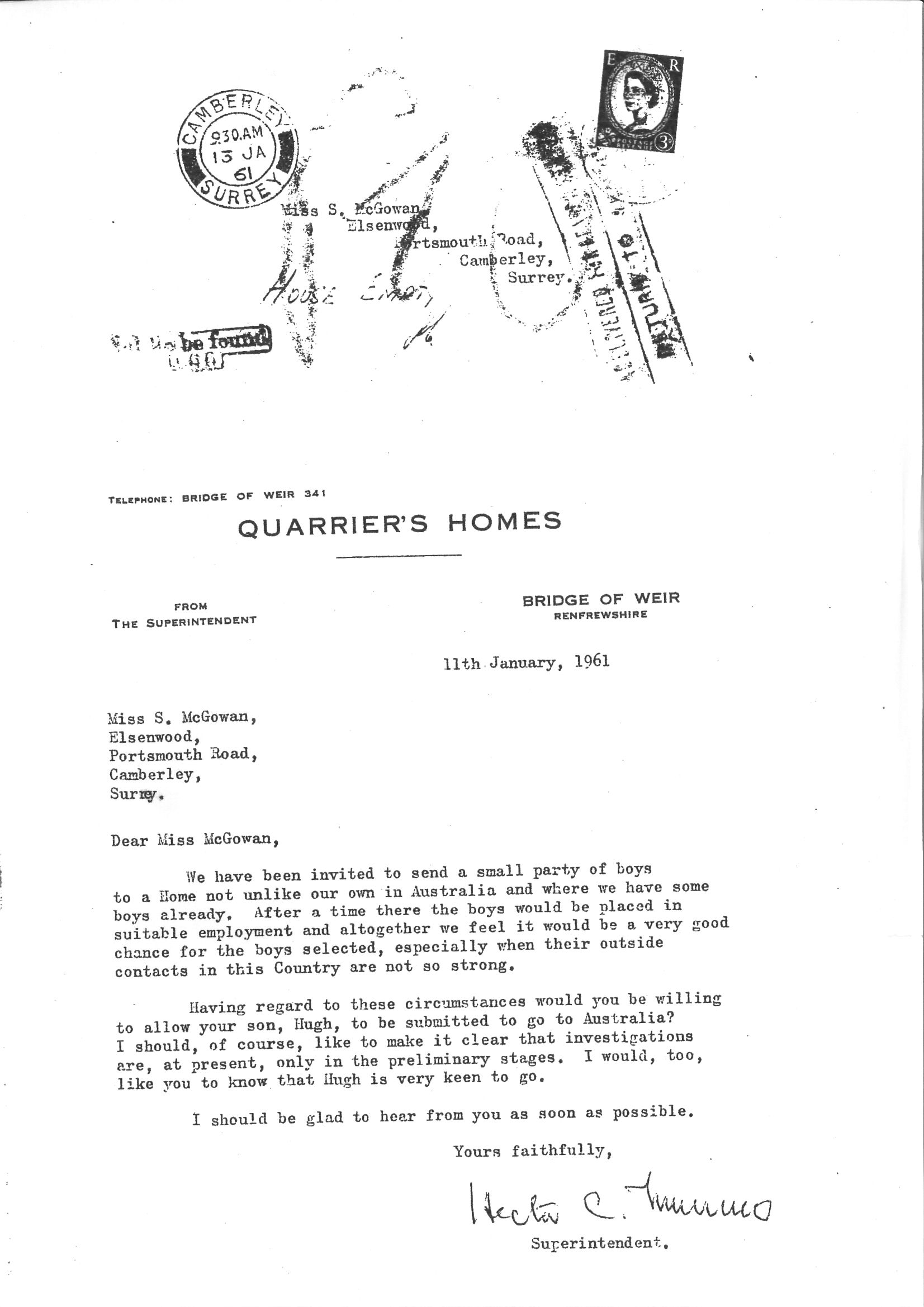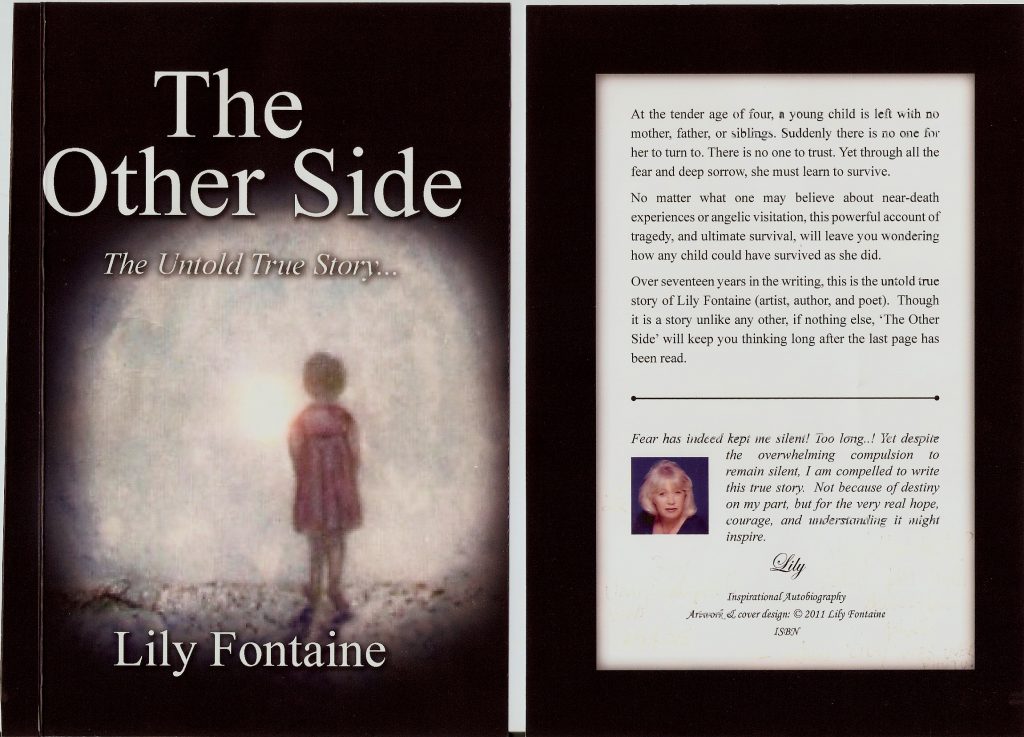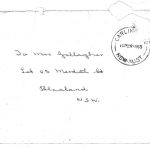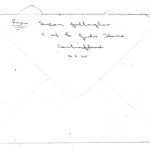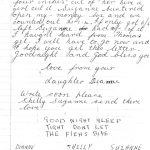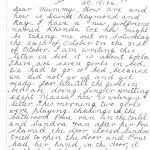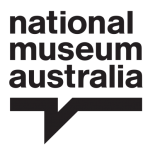Maureen Cuskelly shares some detailed recollections of her experiences at St Aidan’s, Bendigo, where she lived from the age of eight to 17.
Maureen, one of seven children, was sent to Abbotsford Convent, Melbourne at the age of two after her mother was admitted to hospital. Here she shares some of her later experiences at St Aidan’s.
Hell No, We Won’t Go. 1968. According to Time magazine this is the year that shaped a generation1. The anti-war battle cry: Hell No, We Won’t Go spells out the attitude to the Vietnamese war, conscription and restriction of liberty. Western youth sing about love, freedom and peace. It’s the year of liberation but not for everyone.
I enter St Aidans Good Shepherd Convent (Bendigo, Vic) singing the words to the Beatles song Hey Jude: ‘Don’t make it bad, take a sad song and make it better….. Hey Jude don’t be afraid…… And any time you feel the pain, Hey Jude, refrain, Don’t carry the world upon your shoulders’.
Petite build, I weigh 40kg. Mousy brown hair with brown almost black deep set eyes I am not a pretty girl. Maybe I could be described as attractive. Small for my size and young for my age, I look more like an 11 year old. I just had my birthday at home with my mother, and five brothers and sisters. It is three days after my 13th birthday. I didn’t celebrate my birthday. Somehow my mother did not celebrate these things. When I was young I thought she forgot but as I got older I knew she had a sharp mind and did not forget. Birthdays had traumatic memories for her and she just chose not to remember.
There were six of us living in Echuca with mum before I entered the home. As a child I used to fantasize that our family were famous just because we were such a big family. In primary school I had a brother or sister in every class and our school went up to year 8. I imagined we would be famous like the Enid Blyton series The Secret Seven.
Veronica used to live with us in Echuca too but she went into the ‘home’ in January. It is because of Veronica that I am standing here now facing institutional life. Veronica came home for the May school holidays and shocked to find my mentally ill mother treating me so badly she declared
She’s not doing that to you. You’re coming back with me.
Hey Jude, don’t be afraid… I hum to myself. It’s a song of affirmation. I cling to this as I learn the ropes of this institution and the nun’s rules, “be modest girl, don’t laugh. What are you smiling about? Don’t run girl, walk like a lady. Don’t talk like that! Girls don’t sweat. Horses sweat, men perspire, women glow. Don’t be proud, you’ve got nothing to be proud of dear”.
I work at following the rules. I hum, Hey Jude. It’s the top single of the year.
The beginning of the day is the sound of Mother Rita’s key in the lock. I don’t realize it yet but soon this will become one of the chilling sounds I fear. We assemble in silence by our beds until the bell goes indicating morning Mass is finished. Breakfast is toast and urn tea. Mother Rita announces
Take the new girl to Mother Theresa for her morning duties.
Can she use a polisher? Mother Theresa asks Veronica. Mother Theresa seems to know who I am. I think this is a welcome.
No mother.
Well she can sweep the concert hall until she learns. Someone show this girl how to polish that floor, I want to see it reflect my face. The girls giggle. Who would want to look at a reflection of Mother Theresa’s big head?
The concert hall is big, I don’t know how big really. I guess it could seat hundreds of people. It is the biggest area to the cleaned. Chairs line the perimeter of the room and the stage is screened off with brick red velvet curtains. A bigger girl takes me to show me the ropes.
Use this broom and sweep it thoroughly, the older girl tells me, the dust shows up. And, move those chairs out and do under them thoroughly. Fluff and dust accumulate there and you will be in for it if Mother Rita sees any.
I walk up and down the room, pushing the heavy broom ahead of me.
You blockhead, don’t do it that way, work across the room or you won’t know where you’ve been, instructs my chaperone. She’s watching me, not helping. Next, she wheels out the industrial polisher.
Okay, make this floor shine.
The polisher is heavy. I grip the handles awkwardly and the beast flies across the room, dragging me with it.
Let go, let go, she yells.
I release the machine. It stops dead just as quickly as it took off. I am white with shock. She laughs.
Here, I’ll show you, grip the handle lightly and the machine will be easier to control. Work it slowly, move the machine a little to the right and a little to the left. Small circles does it.
Gingerly, I grasp the handle, which I now realize holds the controls. The machine hums, the vibrations work through my fingers. It’s like a jolting movement shaking my hands. With a mind of it’s own the machine lurches across the room in a frog-leap fashion into the chairs. They scatter like skittles.
Work it to the right like I told you, left and right. My instructor guides me again. Don’t let it go straight ahead. It’s not meant to thrust forward. Ha ha, it’s not a man you know. Ha ha.
I don’t know what she means but I get control of the beast and work the floor. After a long period of time she calls Come on, that’ll do. She jumps down from the stage where she’s been sitting, legs swinging idly, watching. It’s hours of work, you’ll get used to it, just sweep one day and polish the next. And don’t forget to dust the window sills and the piano. We better get to school.
A new girl. Mrs Raeburn announces to the class. They already know this. We got ready together this morning, said our prayers in chorus and ate breakfast together didn’t we. It’s hardly likely they did not notice me!
Yes, she continues. Mother Rita has told me all about you. I won’t tolerate trouble in my class. Pointing towards an empty desk, sit there while I get you your sets.
Mrs. Raeburn is the one supervising teacher on our side. A retired elderly teacher, she is from the outside. Mrs. Raeburn is the only outside person that visits the convent. Small, old she wears clunky black wedged heeled shoes and black stockings with every outfit. Her clothing is a knitted skirt and cardigan buttoned to the neck. Her grey fine hair held tautly in a bun matches the no nonsense look. I quickly learn, on every issue she takes Mother Rita’s side.
What year are you in?
Year 8
I come to understand that the schooling is an internal arrangement. Like everything else. We don’t leave the facility and no-one comes in. Our schooling is through the Correspondence School, Melbourne. The school’s purpose, originally, was to provide teacher training by correspondence course for trainee teachers unable to attend the Melbourne Teacher’s College. According to historical records it expanded to secondary level accommodating bush kids, circus kids who were not in one place long enough to go to school. And children in youth training centres. I guess we fit into the last group. Certainly the nuns thought we were criminals. They described us as vulgar, uncontrollable and unable to be trusted. Mother Rita’s view was that if we made good in the world we would get a ‘good office job’’.
By 1911, 600 student-teachers were studying by correspondence.
Students first began using the services of the school in 1914, after an urgent letter from a mother in a remote area concerned about the prospects of educating her two sons. A small group of six trainee teachers volunteered to draw up sets of lessons for the boys who received work every fortnight’ 2.
I’m getting the hang of the routine of the home. Breakfast in silence, do chores – sweep, polish and dust. It’s the regularity that I find comforting during the day. I think about my family in Echuca. Colin is the oldest it’s true. I am the middle child I know this as well. Seven of us. Colin, Terry and Veronica are older than me and Michael, Mary and Robert are younger. I don’t feel like a middle child. I am the older sister to Michael, Mary and Robert which makes me an older child too. The oldest of the youngest. At night I lie awake fretting about Mick, Mary and Robbie. Wracked with guilt for deserting them I toss and turn. My mother is too ill to care for them. How will they get on?
The responsibility for their welfare means I feel neither like a child or an adult. Feverish with worry I ruminate incessantly like this all night. There is no end to it. I do not hear from my family and I cannot settle. Veronica tells me she feels abandoned too. I am reminded of Mother Rita’s words when I arrived at the Parlour door.
Come in dear, you are not to be telling anybody what you have done. Its nothing to be proud of you know. Her pencil thin lips signal how silent we are expected to be. The message is clear, you have a shocking past, sinful child, don’t be telling the other girls about your filthy history.
What have I done? There is no sympathy and no-one to talk to. If a girl complains to the nuns ‘I don’t want to be here’, she is promptly told, ‘we didn’t ask for you to come here either, you know’.
In spite of the agonizing at night I am relieved to feel safe, physically safe from attack. The mundane routine of institutional life is preferable to the unpredictable chaos of life with my disturbed mother. I settle comfortably into the routine.
During the day I work in the laundry. It’s an inferno in summer but emits comforting warmth in winter. I stand on a box to reach the mangle. The linen is scalding hot; the intense steam scorches my face if I get too close. If I am too slow to react the garment goes round the mangle a second time coming back hotter than before. It’s altar linen from the local churches. Hard starched cotton. The effect is like trying to grip a pumice stone. Hard to grip and harder to hold. The knack is to pick the corners of the revolving linen quickly with your fingers tips as it comes round the mangle. The quicker the better, the girls tell me, it will save your fingers getting burnt.
I’ve mastered the polisher and my job in the laundry is sheet folding. It is my forte. The sheets are dried and ironed simultaneously as they rotate through the sheet mangle. This mangle is more sophisticated than the one used for the church linen. It requires speed and accuracy to feed the sheets through so the ‘old ladies’ do it. Sheet-folding, on the other hand, requires skill and speed. Working in pairs we hold an end each, fold the length in half, pull it taut, quarter it, shake out again, smooth the linen down proficiently; do a pirouette meeting in the middle to hand the folded sheet to the girl working with us as the other end. It’s a routine of precision. The last three folds are completed by one girl on the folding table. This routine is for every sheet and there are hundreds of them. The sheets are stacked eight high on the table then loaded into trolleys.
The old ladies let the sheets mount up during the day for us to do after school. With lightning speed we get the stack of unfolded sheets down. My friend Theresa Forster and I are expert at sheet folding. We do this for an hour and a half after school most days. It’s a physical workout all right; we skip in the middle, making of game of it challenging ourselves to beat our best times.
The physical work did not come easy to me though. I recall my first day in the laundry. Arriving at St Aidans in the school holidays I am immediately put to work. Mother Mercy finds me sitting on the folding tables.
Get down child. Tables are not for sitting on. Her face is like a blustering wind when she speaks.
Can I go to the toilet please Mother?
We don’t speak like that, It’s unladylike.
I need to go, what do I say?
Could I be excused please?
There is no need to be explicit. A tilt of the head as you ask indicates it is of a private nature.
I run to ‘Cosy Corner’, even the toilet is incognito. I stay on the toilet as long as I can. For the first week I go to the toilet every hour. I need to sit down and it’s the only resting place there is. I am not up to an eight hour working day. Mother Mercy sends someone to get me, quick hurry you’re in for it for skiving off.
Mondays are the worst days in the laundry. The personal laundry from the boarders at Girton College arrive. Each student’s clothing is bagged separately.
Come on, Mother Mercy says, empty them out and count them.
I turn the bag upside down and shake it. Out tumble smelly socks, sports gear, uniforms and dirty underwear. Girls’ underwear stiff with dried blood. Seven days of dirty underwear and clothes. Urrgghh. I hate this job. Yuk. Now I know why so many girls rushed to the mangle when we came in.
I pick up each pair of panties by the corners trying to avoid the stains. The smell cannot be avoided. It’s our job to audit the personal items. Each piece of clothing is counted, ticked off the sheet and put back in the bags for laundering. I would rather fold sheets for hours than do this!
I spend 4.5 years at St Aidan’s doing schooling by correspondence. I type up my school assignments on the big clunky Olivetti typewriters. One assignment for every subject every week. Lots of typing and ribbon changing. Mother Mercy teaches us how to type with cloth tied over the keyboard so we cannot see the keys. I become a touch typist in spite of the clunky machines. The assignments are sent to the Correspondence School each week. I clean in the mornings before school. Most of Saturday is spending cleaning the dormitories and bathrooms. After school and school holidays I work in the laundry.
When I leave I do not know how to manage money, shop for food, cook, catch public transport and I do not know my way around the town I have lived in for the last 5 years. There is little support for ‘homies’ when we leave. For a short while I wander the streets looking for love. This nearly ends in disaster. I talk the welfare into letting me go back to school to finish year 12. They fund me and I live in a boarding house with strange people. Other misfits like me. A pale lady who never leaves her room, a grey bearded man who talks to himself all day; a man who drinks too much who asks me if I am on the contraceptive pill. The elderly owners of the boarding house go north for winter and leave their divorced son-in-law in charge. This nearly ends in disaster as well. I fry peas and uncooked rice in a pan but it is un-chewable. Life is daunting.
Eventually I learn how to boil rice, catch a bus to school and shop. Over the next two years I attend three schools and it takes me three attempts to complete year 12.
Today I am well educated. I have four qualifications and have worked in the mental health field for 37 years. I love this work but I have terrible arthritis in my hands. It is a limiting condition that restricts my life considerably. Too much work as a child, living in cold harsh conditions, folding sheets, polishing and scrubbing floors has meant my hands have aged years ahead of their time. Altogether I have spent over 10 years of my childhood in homes; six years in the Good Shepherd Convent in Abbotsford and four and a half years with the Good Shepherds in Bendigo. As time wears on my hands wear out. The years of repetitive work and agitations of an industrial polisher mean now that the vibrations of a car steering wheel are like small violent stabs. Today, it is difficult to grip the steering wheel for long periods of time. For years now I have been adjusting my life to accommodate my hands. The biggest thing I miss is being able to drive to Bendigo to see my brothers and sisters. Using public transport that take most of the day to get there when a car trip is a comfortable three hours drive away is frustrating. Being unable to hold a pen to write Christmas cards, hold cutlery, fumble and struggle to grip money to pay for groceries, difficulty dressing and being unable to change my grandson’s nappy. These are the daily things I struggle with. If I do too much in a day I can hardly hold my cutlery. Hand surgery, some home changes and life style restrictions all help a bit.
The lyrics from the Bee Gees songs still swim around in my head:
Where are the girls / I left all behind /The spicks and the specks/ Of the girls on my mind/ Where is the girl I loved all along/ The girl that I loved / She’s gone she’s gone/ All of my life I call yesterday/ The spicks and the specks …
Luuv they don’t even know how to say it.
Disgusting singers. That Tom Jones and Elvis Presley they’re corrupting innocent girls with their pulsating and gesticulating hips.
We’d walk around the grounds laughing and singing You’ve lost that loooving feelin, oh that loving feelin, you’ve lost that loving feelin, now its gone, gone, gone, oh, oh, oh.
(The Righteous Brothers, ‘You’ve Lost That Lovin’ Feelin’).
On occasion fights used to break out over whether Tom Jones was better than Elvis. The new girls would bring new songs and stories of the ‘latest’. I remember when Johnny Farnham was a new comer to the pop scene. He would be, alternately, drooled over and fought over. Having been in the home a while I did not know much of the outside scene so I faked my knowledge of the singers and songs. No-one noticed and no-one cared. Mother Rita’s disapproval of them guaranteed we idolized them even more. To sing of love and freedom was our rebellion. Today, I imagine the girls are still singing the songs:- unrestricted, loud, bold and free.
Those were the days my friend / We’d thought they’d never end / We’d sing and dance / Forever and a day. We’d live the life we’d choose / We’d fight and never lose / For we were young / And sure to have our way … La La La La La La La La La La La La … Those were the days, my friend those were the days.
(Mary Hopkin. ‘Those were the Days my Friend’).
[1] Time 1968. A Pictorial History. Special Collectors Edition.[2] https//www.distance.vic.edu.au/about/abthist.htmVeronica and I chat for hours about the wonderful girls we grew up with. We wonder what they are doing? We imagine they still sing the songs of our youth. We know well how adolescent pleasures were restricted in the home. Mother Rita scorned all pop music.


